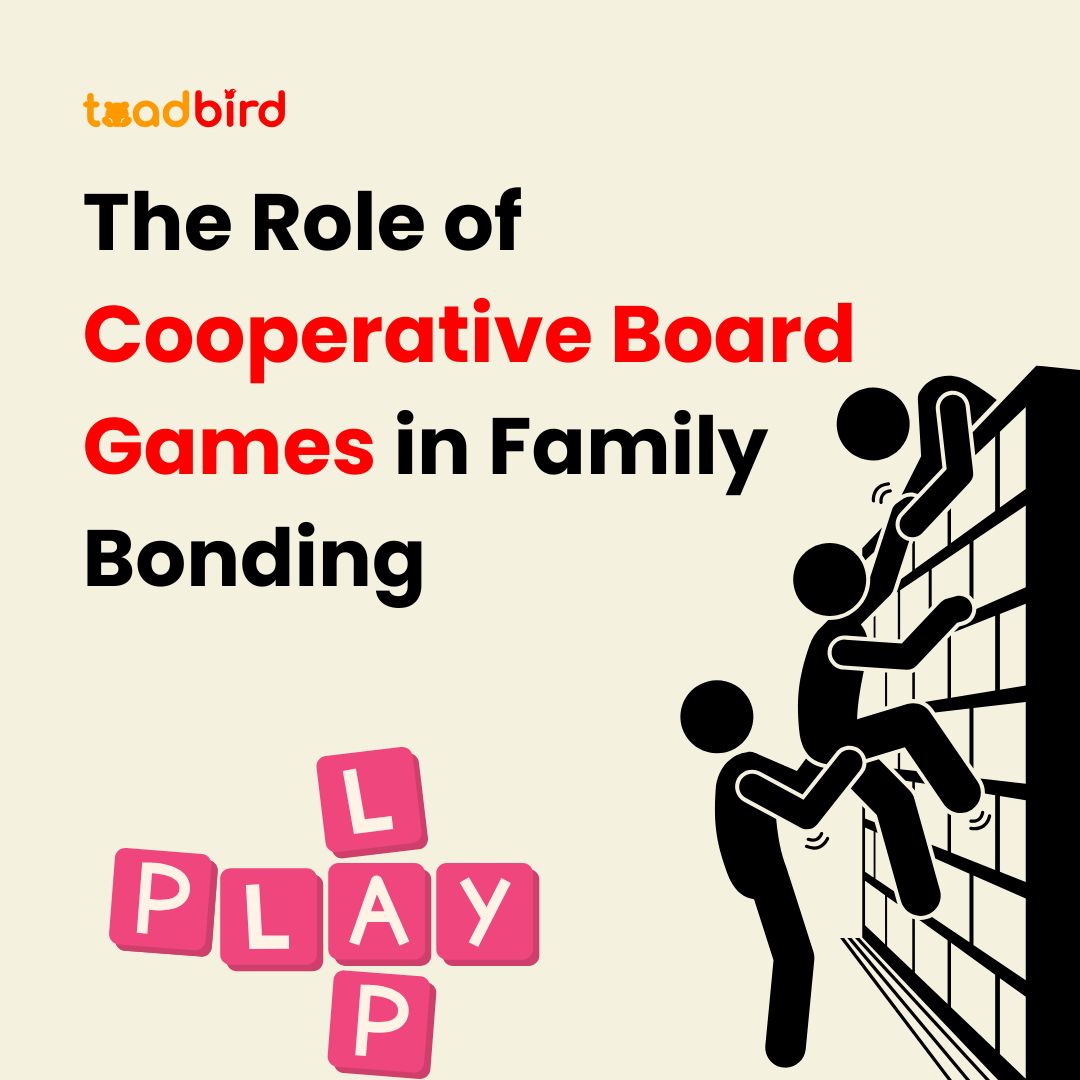
Cooperative Board Games vs Competitive: Which is Best for Family Bonding?
Zeba ParkarShare
While board games in general have a quality of bringing families together, it is not the same for every game. Cooperative board games create an aspect of teamwork among players, as the idea is to have them work towards a common goal. This brings in the aspect of unity, shared achievements, and mutual support among them. However, competitive board games generate a completely different energy by racing each other to the top-the last often being the first loser, with high stakes and overflowing emotions.
When choosing between cooperative games and competitive games to create family bonding, it's really important to take into consideration how your family is as a unit. Some children really thrive in the rush of competitive play, but others get stressed or feel discouraged by it. Cooperative board games nifty eliminate the pressure of having to "win" and focus more on the collective effort, which creates a much more supportive and enjoyable atmosphere for all involved. Whether you want to develop strong teamwork or challenge individual skills, the choice of game will really make a difference in your family's game night experience.
Benefits of Cooperative Games
One thing I really get out of cooperative board games is the fact that it eliminates so much of that usual pressure about winning or losing. I have seen so much growth in my kids with the problem-solving and teamwork involved in these games, and instead of competing against each other, they work towards a common goal. It's a very organic way of teaching social skills and communication without the pressure of trying to "defeat" someone.
I recall times, especially when they were younger, when the game was not merely about the rules-it became all about working together and learning to trust each other. There's just something very satisfying in watching them figure out their solutions together, and that satisfaction they draw from those moments is priceless. I can sincerely say that so much practical experience comes out from these games as far as the game goes. The kind of teamwork they receive here translates so much into the everyday life. In a competitive world, cooperative games have indeed become such an attractive alternative.
I find the fact that cooperative games teach them that success need not be associated with one individual winning. It's about all of us coming together, learning from each other, and enjoying the process. And honestly, seeing them embrace that spirit of teamwork and positive relationships—I know it's something that will stick with them far beyond the gaming table.
The Drawbacks of Competition
Well, competitive games can be fun certainly, but I have seen that sometimes they are too much for small children. I remember a few instances where my kids were upset after losing. Of course, this is not just about being disappointed; tears flow, tension and conflicts overrun, and the fun of playing is destroyed. So, instead of learning from the experience, the girls were stuck in the fantasy of winning without losing.
When playing inherently competitive board games, the focus often shifts to victory at all costs. It’s easy to see how this could create a pathological culture—one where the ultimate goal becomes winning, no matter the cost. As much as we want our children to be resilient and understand competition, this mindset can sometimes spill over into other areas of their lives. All these make it hard for them to engage in team sports or cooperative outdoor activities in which the emphasis is put on teamwork and mutual effort. If children get too used to individual success, teamwork will be like a thought from an old world.
Such a way of thinking can also influence the ways of their approach in physical education and team games. Instead of focusing on the experience and the joy of physical exertion, they might become fixated on achieving a specific outcome, making it harder to enjoy non-physical pursuits or see the practical benefits of cooperative play. In some cases, it even turns out to be a fun experience where one's win is regarded as a defeat for all of them. Now, I think it is a reflection that cooperative games offer a way to bring families together much better without all these emotional ups and downs that sometimes come with competition rituals.
Choosing the Right Type of Game for Your Family
Choosing the right family board games really isn't a one size fits all endeavor. It becomes more of picking the right balance of game dynamics versus your family's goals and values. If strengthening relationships through working together and teaching other skills such as negotiation and how to communicate are paramount, then likely cooperative games best fit the criteria. They provide an environment where all members work toward a common goal, which can be highly beneficial in teaching children how to work together as a team to solve problems.
However, if your children are older and like a challenge and are more into strategic thinking, then competitive game might be rewarding. Some kids thrive on the excitement of competition, and it can offer opportunities to practice resilience and handling both victory and defeat. In these cases, competitive board games could be a way to help them learn valuable lessons in decision-making and critical thinking.
When choosing, take into consideration the unique personalities of your kids. Are they the type who enjoy small groups and working together to make sense of a puzzle, or do they prefer performing individually and figuring things out on their own? If arguments tend to emerge during family game time, rule-driven cooperative games may be best, which shifts focus from adversarial affairs to shared successes. This is a more harmonious atmosphere because everyone feels that they are contributing, thus generating deep satisfaction through teamwork rather than the pressure of competition.
ToadBird offers plenty of games that foster a cooperative environment.
Board Games for Families
When it comes to finding the best cooperative board games that bring families together, there are plenty of exciting options. Games like Pandemic, Forbidden Island, and Mystic Arts are perfect examples of how you can engage in problem-solving while strengthening teamwork. These games create an atmosphere of collaboration, where every family member’s input matters as you work together to achieve a common goal. They’re also fun enough to keep kids entertained and challenged, without the pressure of competition.
If your family leans more towards competitive board games, you can’t go wrong with classics like Ticket to Ride and Catan. These games are ideal for older children and adults alike, providing fun, strategic challenges that require careful planning and tactical thinking. They encourage players to think critically and adapt to changing circumstances—skills that will benefit them outside the game room as well.
For families who enjoy physical activities pursued outdoors, don’t overlook the value of cooperative outdoor activities like capture the flag. While these games are different from board games, they offer a wonderful way to blend teamwork with exercise. Engaging in such activities can help children build physical stamina while strengthening social skills in a real-world setting. Mixing both tabletop games and physical games ensures a balanced approach to family bonding, keeping everyone active, engaged, and connected.
The Role of Cooperative Board Games in Family Bonding
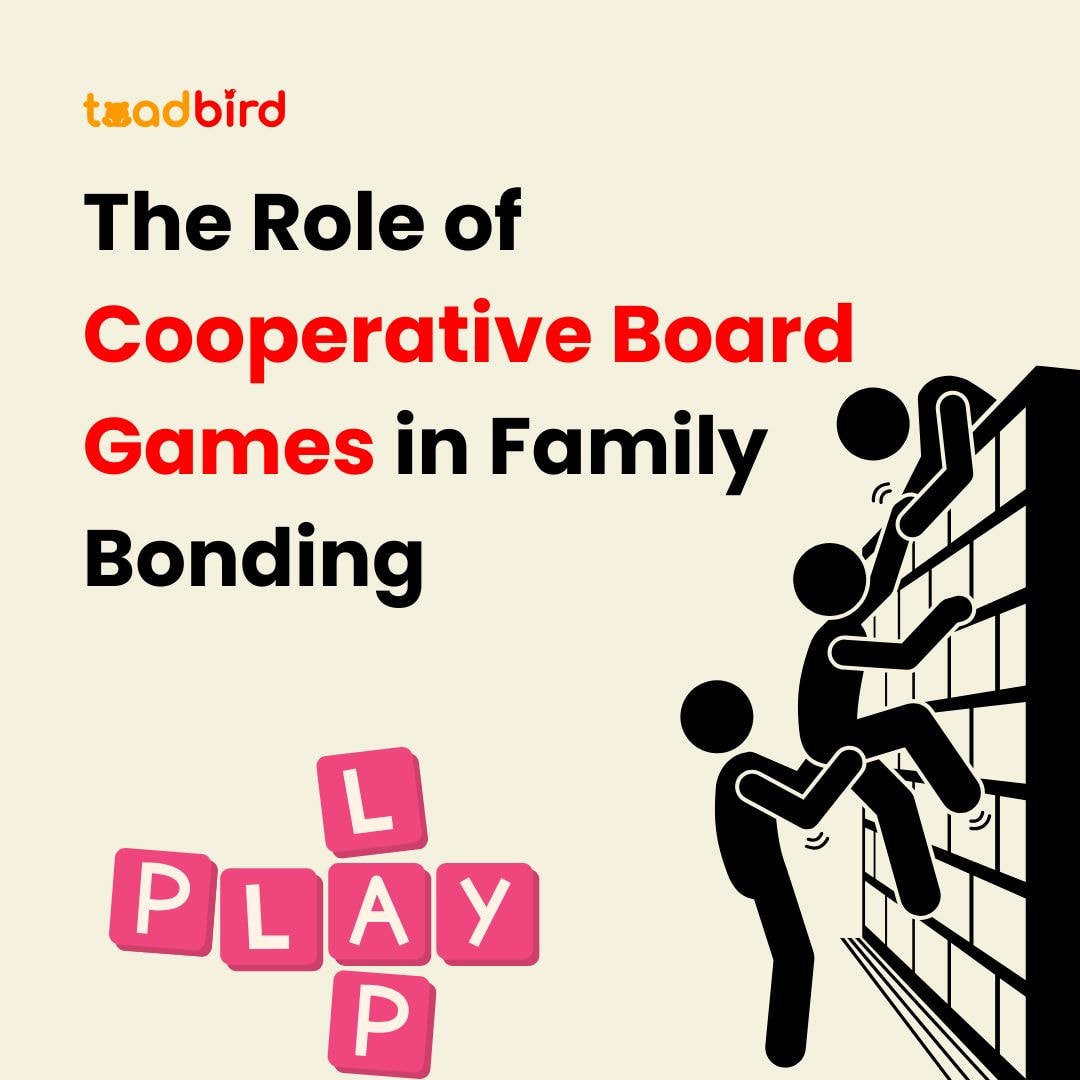
Building Stronger Connections Through Teamwork
Cooperative board games are key in my opinion to building better relationships within the family. The kind of board games that encourage people to play together for a common goal, such as Pandemic or Forbidden Island, provide both entertainment and opportunities for team building and social skills. In contrast to the competitive nature of traditional games, these board games encourage teamwork, making it easy for the family members to see the importance of shared effort. This change in focus, from competing to working together, strengthens emotional connections as they all work towards a unified objective instead of personal achievement.
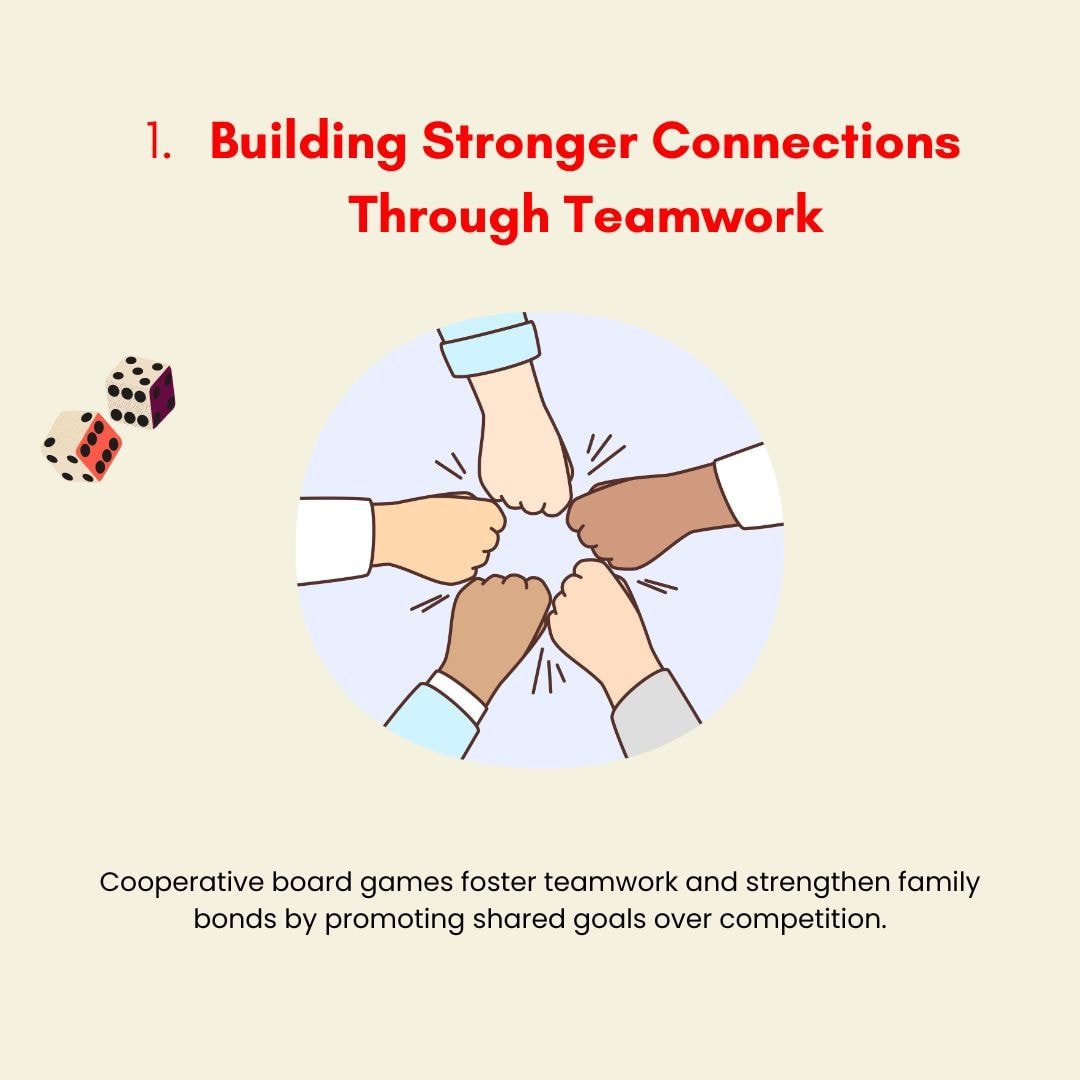
Learning Life Skills Through Collaboration
Playing these games has shown me how much cooperative games can teach the kids valuable lessons in life. The act of teaching physical education or even team sports is often rooted in similar concepts of teamwork and collective problem-solving, which is why I find cooperative games to be the ideal precursor to those activities. For instance, playing cooperative board games with my children has made them realize that winning is not a personal success but rather teamwork. This is almost like real-life scenarios where negotiating and socialization skills are the real keys to victory.
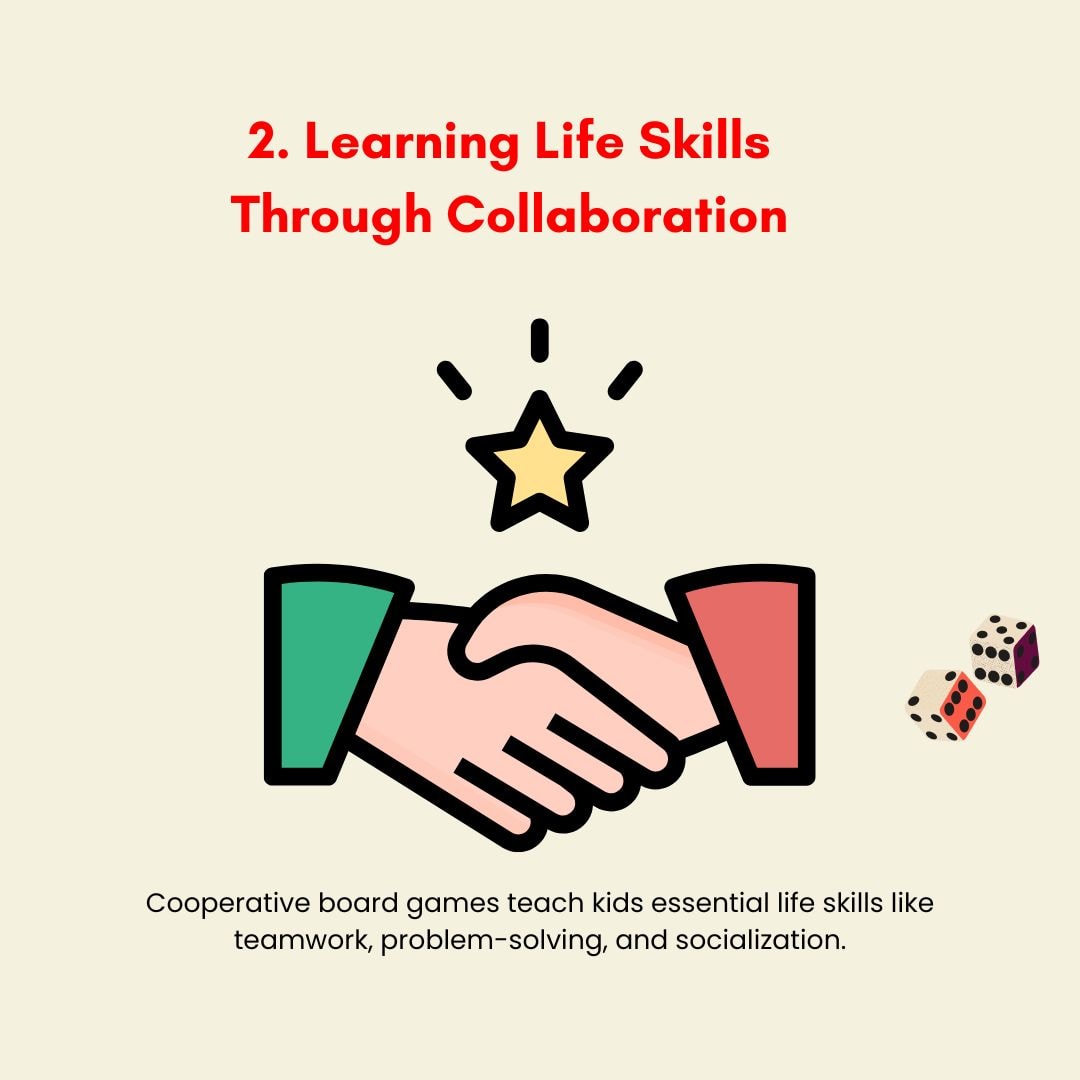
Focusing on the Journey, Not the Destination
Cooperative games are very different from competitive board games, where the focus can often be on competitive rituals or winning at all costs. The pressure to win is removed, and the enjoyment comes from the shared journey. The absence of a child win doesn't create adversarial relationships; instead, the goal is to have fun and learn as a team. This is one of the reasons I love these games so much because they allow us to bond through deep satisfaction derived from overcoming together.
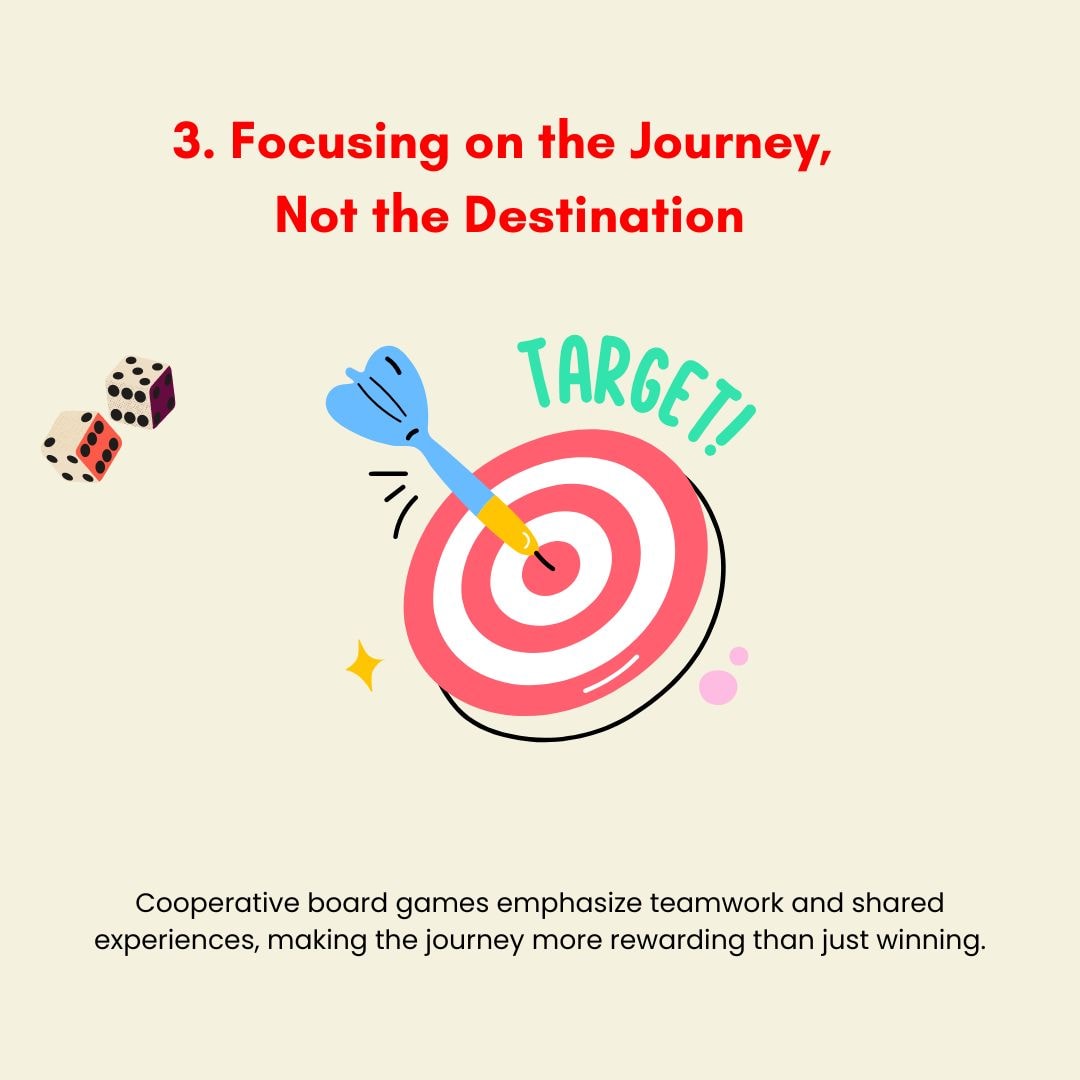
Strengthening Bonds Beyond the Table
The conversations after a gaming session can be just as meaningful as the games. After playing, we find ourselves talking about strategies, reflecting on what went right or wrong, and discussing ways we could approach challenges in the future. This sense of collective effort extends beyond just board games into other parts of our life. Cooperative tabletop games teach lessons that spill over into everyday life: collaboration and mutual respect lead to lasting success.
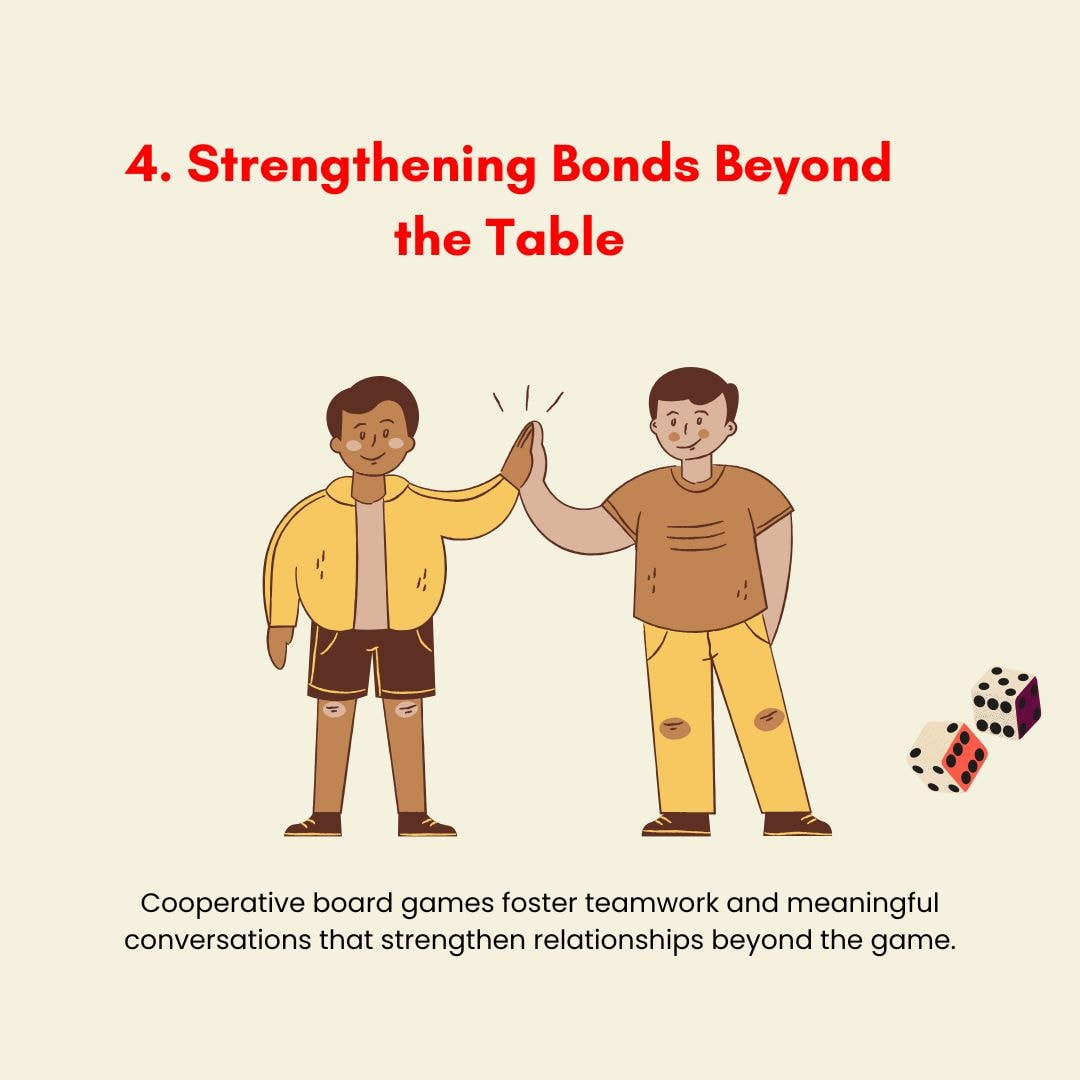
A Promising Strategy for Family Engagement
At the end of the day, the true value of cooperative board games lies in their ability to create a bonding experience that’s both educational and fun. Whether you’re playing team games or enjoying the playful spirit of a recreational event, these games provide opportunities to engage with your family in ways that traditional rewards and competitive game simply cannot. It’s not about the correct answer or outshining others; it’s about coming together as a team to tackle challenges, reinforcing lessons of cooperation that will benefit everyone long after the game is over.
The Role of Competitive Board Games in Family Bonding

The Power of Healthy Competition
The key to enjoying competitive games without creating tension lies in fostering healthy competition. While competitive game can sometimes lead to intense emotions, when approached with the right attitude, it provides a platform to practice negotiation skills and socialization tools. I’ve seen firsthand how a game like Ticket to Ride, despite its competitive nature, can teach children how to lose graciously and handle adversarial affairs in a more positive light. It’s not about the child winning or individual victories, but about building resilience and having just how much fun while learning from every game.
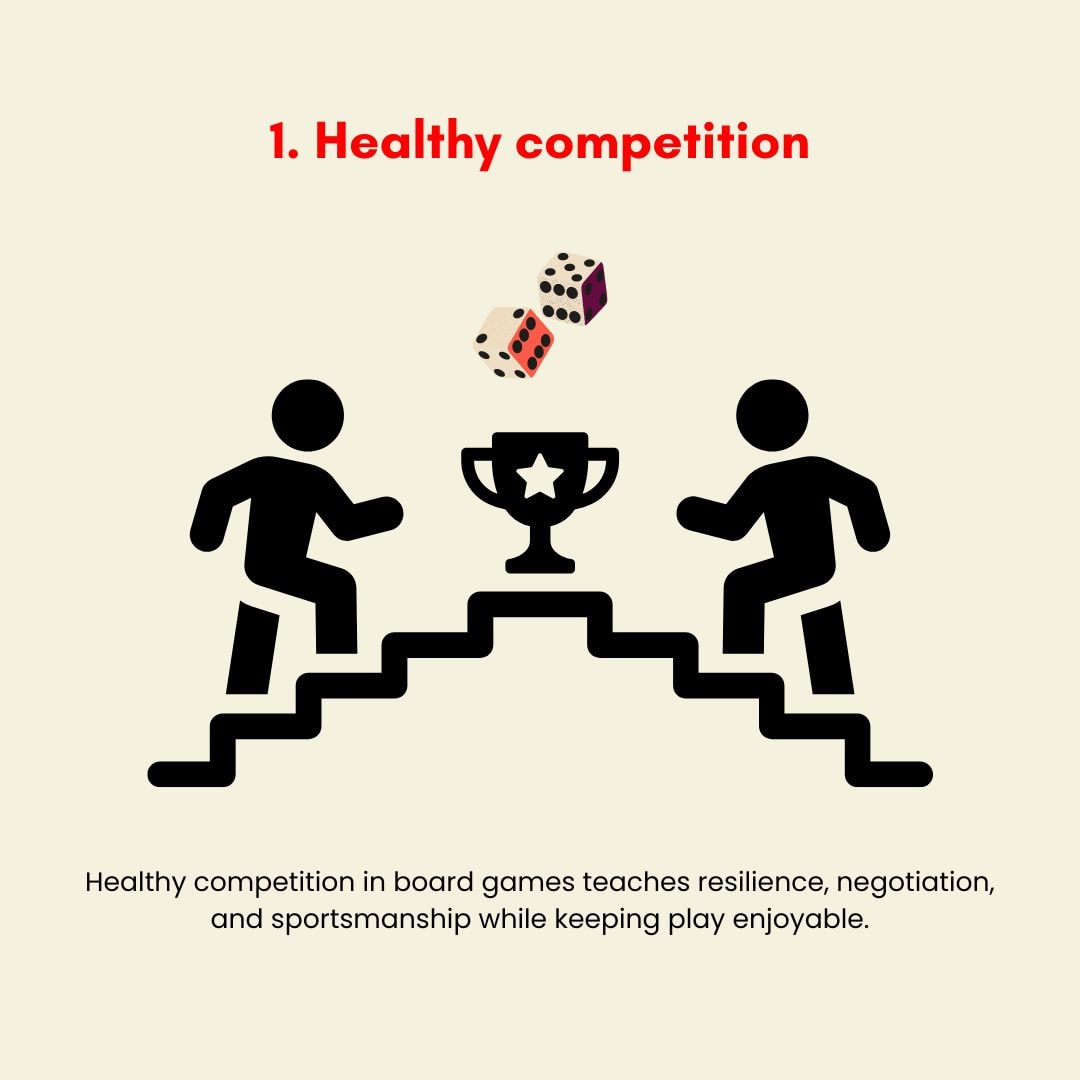
Fostering Strategic Thinking Through Friendly Competition
Competitive board games can be a great way for families to bond, though they also have their own set of challenges. In my experience, games like Catan and Ticket to Ride are great for encouraging strategic thinking and decision-making skills. The structured nature of these board games forces players to think ahead, plan their moves, and evaluate risk versus reward. This process naturally translates into problem-solving skills that can be useful both in team sports and in everyday family interactions.

Teaching Resilience and Sportsmanship
Winning and losing also characterize competitive gameplay. Players with experienced failures know how to lose graciously; this teaches one the lesson of emotional strength, where failures happen because of opportunities to grow into successes rather than failures. Proper sportsmanship also characterizes competitive games; it encourages players to respect opponents and the game rules, as well as have a positive attitude regardless of the win or loss result.
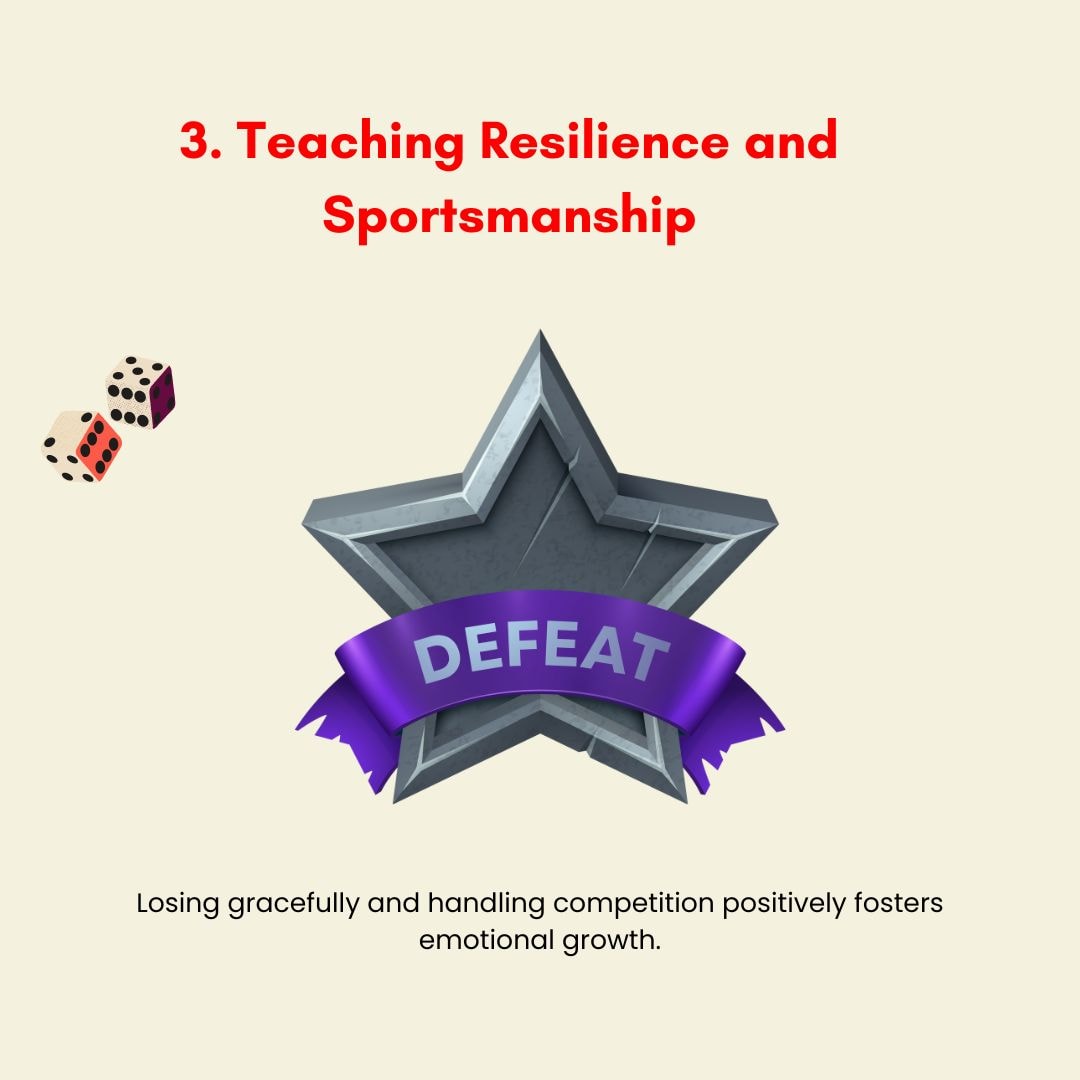
Social and Negotiation Skills
These competitions often require direct interaction between players, which usually includes communication, persuasion, and strategic alliances. Examples of such games include Monopoly or Diplomacy, which are heavily based on negotiation; one must make deals, trade resources, or forge temporary alliances to move forward. These interactions help improve social skills by teaching individuals how to navigate complex relationships and make strategic decisions in group settings.
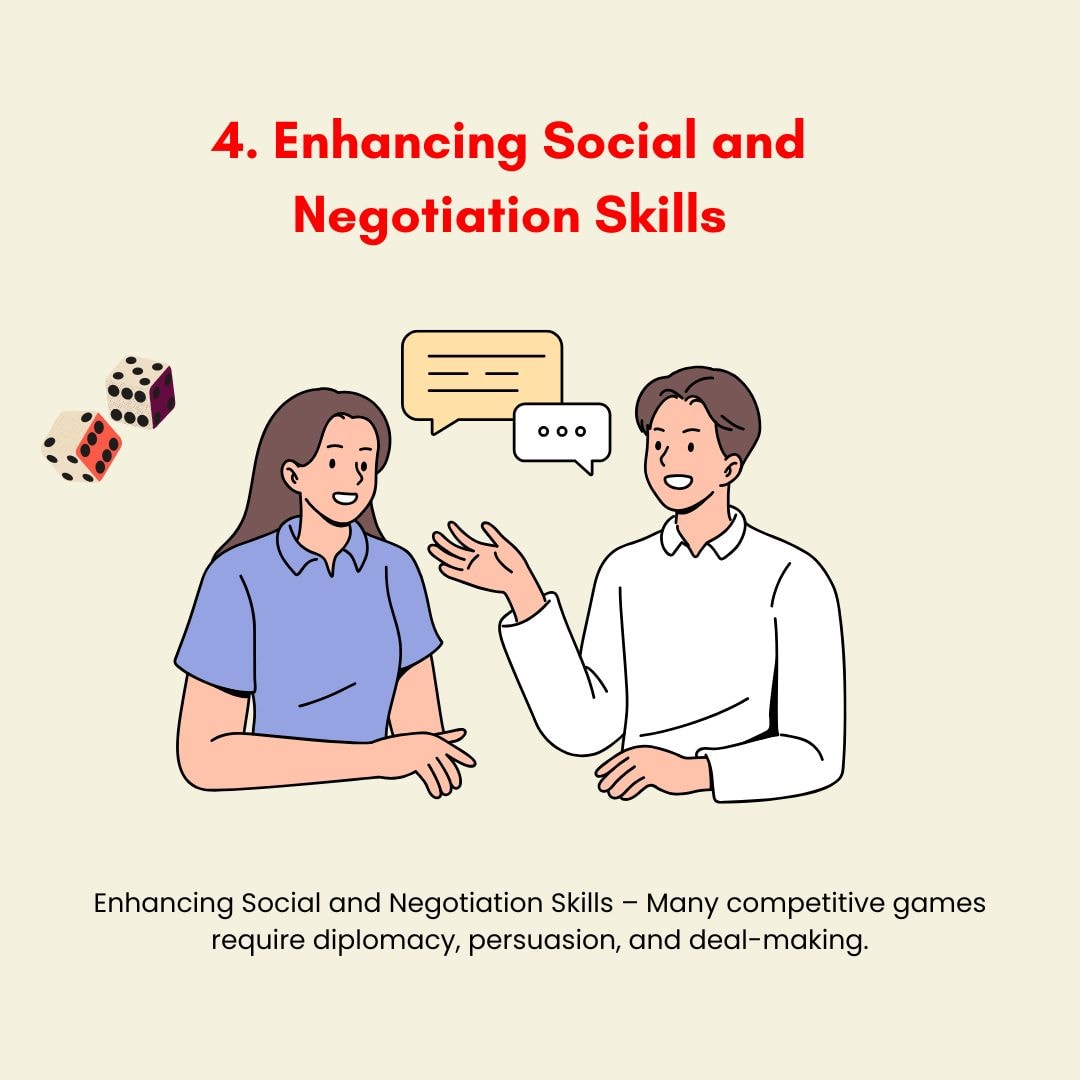
Balance Between Competition and Collaboration
I learn from my family that a little bit of the cooperative board game vs competitive aspect requires a balance because competitive games can overpower what the whole fun of playing with the family was about-to enjoy playing together as one. I recall one game where the competition got a little heated, but we took a step back and reminded each other about the joy of being together and enjoying the experience, not just the win. It's easy for competitive rituals to dominate, but the recreational event can still be enjoyable when we focus on having fun and learning, not just "winning at all costs."
Why Balance is Crucial for Family Bonding
While it's quite obvious that competitive games give immense practical benefits, such as solving problems and learning to handle hostile relationships, it's equally important to recognize when they have served their purpose. Moderation with enjoyment in playing, rather than a win-at-all-costs approach, can really bring families closer together when playing competitive board games. Just like the structure in teaching physical education or managing competitive play in school, these games provide emotional growth opportunities that strengthen family relationships.
Conclusion
At the end of the day, cooperative board games and competitive board games each have their own place in family bonding. If your goal is to nurture team building and develop social skills, cooperative games are an excellent choice. These games neatly eliminate the pressure of winning and instead focus on collaboration. In just such an arrangement, family members can come together to solve problems, encouraging communication skills and a sense of shared achievement.
On the other hand, there are times when competitive play can be beneficial too. While competitive games often revolve around victory, they also provide an opportunity to teach negotiation skills, as children learn how to communicate and compromise in the heat of competition. It’s important, however, to avoid letting the usual competitive kind overshadow the fun of playing together. Introducing competitive board games can offer family bonding opportunities when done thoughtfully, especially as your kids get older.
Check out Toadbird games for both cooperative and competitive board games for the entire family. Our games not only provide entertainment but also add the education to the mix.